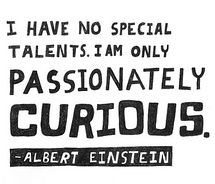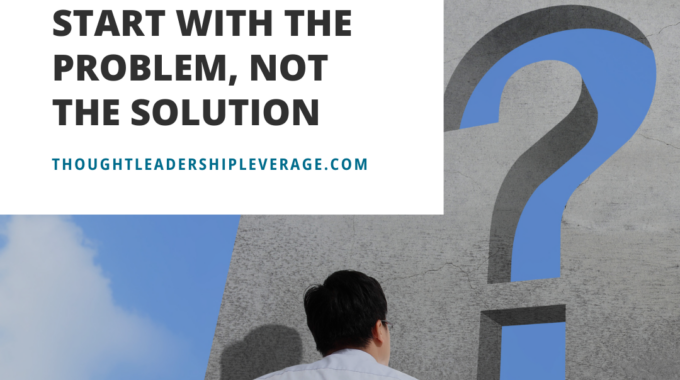Hey, thought leaders! I want to tell you about a powerful approach to thought leadership…
What Do All Thought Leaders Have in Common?
I have the privilege of working with some of the greatest thought leaders of our time. I learn something from each of them during every interaction and hopefully, more often than not, they learn something from me as well. The range of expertise that my clients have is vast; sales, leadership, management, communications, strategy, marketing, finance, emotional intelligence, innovation and relationship development, to name just a few. Someone asked me the other day what they all have in common. Great question! (I love great questions.)
From a personality perspective, educational perspective and professional background prospective, the thought leaders I work with and have met couldn’t be a more diverse group. Harvard MBA’s to high school dropouts, introverts to extroverts, academics to CEOs and founders of incredible companies and organizations, warm and fuzzy types to brutally direct and analytical. The traits that they all share are:
1) They are all incredibly smart (in some cases scary smart). The smarts may be the result of a stellar education or life experiences or a combination of both, but intelligence is certainly a common characteristic amongst all thought leaders.
2) They are all very curious. As adults, our innate sense of curiosity seems to diminish over time. Kids are insanely curious. The authors and thought leaders that I’ve known all tend to have an almost childlike sense of curiosity. They’re constantly asking questions, learning new things, voraciously reading and learning. Some of them have a more focused type of curiosity; meaning that their heightened sense of curiosity is centered on their content and work. Others have a broader sense of curiosity and seem to be interested in wide ranges of things. They have an uncanny ability to learn from seemingly unrelated disciplines and gain insights that are relevant to their work.
3) They are all passionate about what they do. You can be incredibly smart and curious which is obviously better than not being smart or curious, but adding passion to the mix is key. You can’t fake passion (and if you can that’s the subject for a very different conversation). Every person who is a true thought leader is incredibly passionate about what they do and how their work impacts individuals, teams or organizations. Some are literally changing the world, some have developed models or methods to help people sell, market, manage or lead more effectively. Some have deep expertise in finance or business. The domain of the expertise isn’t relevant. The passion is.
So here’s what I’ve learned from having someone ask me a really good question. Smarts, curiosity and passion are essential characteristics for authors and thought leaders. Having all of these is not a guarantee of any kind of success (sorry, I wish it was that simple). However, not having all of them will clearly be a hurdle that I’ve yet to see anyone overcome. If you’re about to invest your time, energy and effort into becoming an author and thought leader, spend some time being introspective to be sure you’ve got the right levels of all of these characteristics.
Comments (4)
Comments are closed.






Peter, excellent post on the characteristics of thought leaders. I have asked the same question too and the answer is basically parallel to your content above. Possessing extreme passion is a character that makes a thought leader worth following.
Keep up the great content.
Stacie Walker
Woman in Leadership
Peter,
I agree with Stacie. Great post. The curiosity and passion are what make these thought leaders interesting. The diversity of topics seems to be a compelling magnet, as well. When we are experts in one field, but knowledgeable and interested in other fields, it only increases the appeal to others.
Thanks,
Bill Self
Customer3D.com
I agree.
Genius is really sustained attention to a subject and the only thing that I know that will keep ones attention on a subject long enough is curiosity. Well, curiosity and an open mind but don’t the two go together? If ones mind is closed to new ideas, concepts, insights and perceptions what would stir ones curiosity?
Thanks for a nice article.
♡ Jeanine
Peter – you’re saying I can’t name a single self-made billionaire who isn’t curious about the world? Are you sure? Have you read “The Halo Effect,” by Rosenzweig?